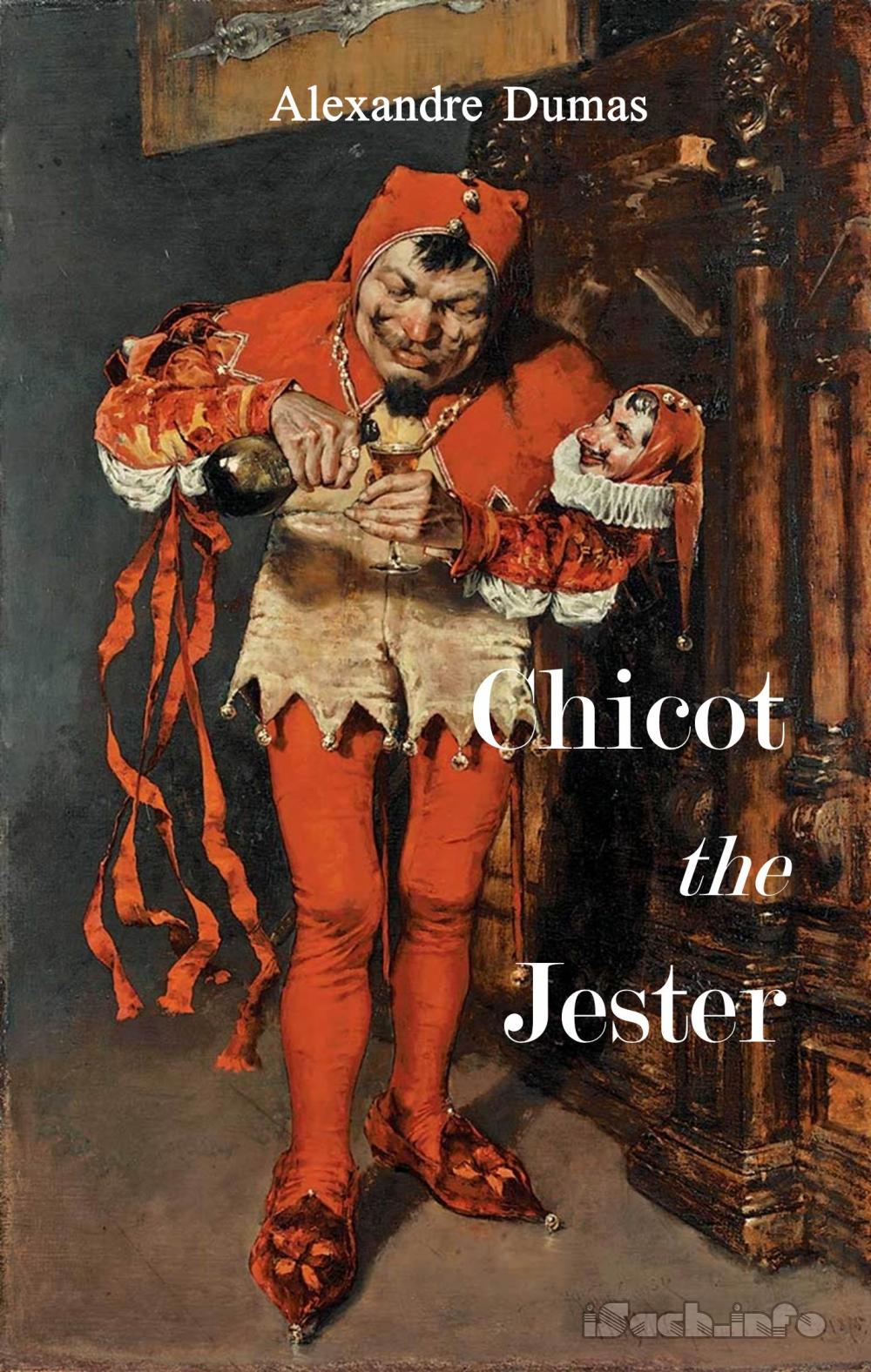Chapter 26: How Brother Gorenflot Awoke, And The Reception He Met With At His Convent
C
hicot, after seeing with pleasure that Gorenflot still slept soundly, told M. Boutromet to retire and to take the light with him, charging him not to say anything of his absence. Now M. Boutromet, having remarked that, in all transactions between the monk and Chicot, it was the latter who paid, had a great deal of consideration for him, and promised all he wished. Then, by the light of the fire which still smouldered, he wrapped Gorenflot once more in his frock, which he accomplished without eliciting any other signs of wakefulness than a few grunts, and afterwards making a pillow of the table-cloth and napkins, lay down to sleep by his side. Daylight, when it came, succeeded in at last awakening Gorenflot, who sat up, and began to look about him, at the remains of their last night's repast, and at Chicot, who, although also awake, lay pretending to snore, while, in reality, he watched."Broad daylight!" said the monk. "Corbleu, I must have passed the night here. And the abbey! Oh, dear! How happy he is to sleep thus!" cried he, looking at Chicot. "Ah! he is not in my position," and he sighed. "Shall I wake him to ask for advice? No, no, he will laugh at me; I can surely invent a falsehood without him. But whatever I invent, it will be hard to escape punishment. It is not so much the imprisonment, it is the bread and water I mind. Ah! if I had but some money to bribe the brother jailer."
Chicot, hearing this, adroitly slipped his purse from his pocket and put it under him. This precaution was not useless, for Gorenflot, who had been looking about him, now approached his friend softly, and murmuring:
"Were he awake, he would not refuse me a crown, but his sleep is sacred, and I will take it," advanced, and began feeling his pockets. "It is singular," said he, "nothing in his pockets. Ah! in his hat, perhaps."
While he searched there Chicot adroitly emptied out his money, and stuffed the empty purse into his breeches pocket.
"Nothing in the hat," said the monk. "Ah! I forgot," and thrusting in his hand, he drew from the pocket the empty purse. "Mon Dieu," cried he, "empty! and who will pay the bill?"
This thought terrified him so much that he got up and made instantly for the door, through which he quickly disappeared. As he approached the convent, his fears grew strong, and seeing a concourse of monks standing talking on the threshold, he felt inclined to fly. But some of them approached to meet him; he knew flight was hopeless, and resigned himself. The monks seemed at first to hesitate to speak to him, but at last one said:
"Poor dear brother!"
Gorenflot sighed, and raised his eyes to Heaven.
"You know the prior waits for you?"
"Ah! mon Dieu!"
"Oh! yes; he ordered that you should be brought to him as soon as you came in."
"I feared it," said Gorenflot. And more dead than alive, he entered the convent, whose doors closed on him. They led him to the prior. Gorenflot did not dare to raise his eyes, finding himself alone with his justly irritated superior.
"Ah! it is you at last," said the abbé.
"Reverend sir——"
"What anxiety you have given me."
"You are too good, my father," said Gorenflot, astonished at this indulgent tone.
"You feared to come in after the scene of last night?"
"I confess it."
"Ah, dear brother, you have been very imprudent."
"Let me explain, father."
"There is no need of explanations; your sally——"
"Oh! so much the better," thought Gorenflot.
"I understand it perfectly. A moment of enthusiasm carried you away; enthusiasm is a holy virtue, but virtues, exaggerated become almost vices, and the most honorable sentiments, when carried to excess, are reprehensible."
"Pardon, my father," said Gorenflot, timidly, "but I do not understand. Of what sally do you speak?"
"Of yours last night."
"Out of the convent?"
"No; in it. I am as good a Catholic as you, but your audacity frightened me."
Gorenflot was puzzled. "Was I audacious?" asked he.
"More than that—rash."
"Alas! you must pardon me, my father. I will endeavor to correct myself."
"Yes; but meanwhile, I fear the consequences for you and for all of us. Had it passed among ourselves, it would have been nothing."
"How, is it known to others?"
"Doubtless; you know well there were more than a hundred laymen listening to your discourse."
"My discourse!" said Gorenflot, more and more astonished.
"I allow it was fine, and that the universal applause must have carried you on, but to propose to make a procession through the streets of Paris, with a helmet on your head and a partisan on your shoulder, appealing to all good Catholics, was rather too strong, you will allow." Gorenflot looked bewildered.
"Now," continued the prior, "this religious fervor, which burns so strongly in your heart, will injure you in Paris. I wish you therefore to go and expend it in the provinces."
"An exile!" cried Gorenflot.
"If you remain here, much worse may happen to you, my dear brother."
"What?"
"Perpetual imprisonment, or even death."
Gorenflot grew frightfully pale; he could not understand how he had incurred all this by getting tipsy in an inn, and passing the night out of the convent.
"By submitting to this temporary exile, my dear brother, not only will you escape this danger, but you will plant the banner of our faith in the provinces, where such words are less dangerous than here, under the eyes of the king. Set off at once, then, brother; perhaps the archers are already out to arrest you."
"The archers, I!" said Gorenflot.
"I advise you to go at once."
"It is easy to say 'go,' but how am I to live?"
"Oh! nothing more easy. You will find plenty of partisans who will let you want for nothing. But go, in Heaven's name, and do not come back till you are sent for." And the prior, after embracing him, pushed him to the door. There he found all the community waiting for him, to touch his hands or his robe.
"Adieu!" said one, embracing him, "you are a holy man; do not forget me in your prayers."
"I, a holy man!" thought Gorenflot.
"Adieu, brave champion of the faith," said another.
"Adieu, martyr," said a third, "the light will soon come."
Thus was he conducted to the outside of the convent, and as he went away he exclaimed, "Devil take me, but either they are all mad, or I am."



 ePub
ePub A4
A4